Boss unveils two new Space Echo pedals, the long-awaited RE-2 and RE-202
Based on intensive R&D, the two stompboxes promise to provide the definitive Space Echo experience in pedal form
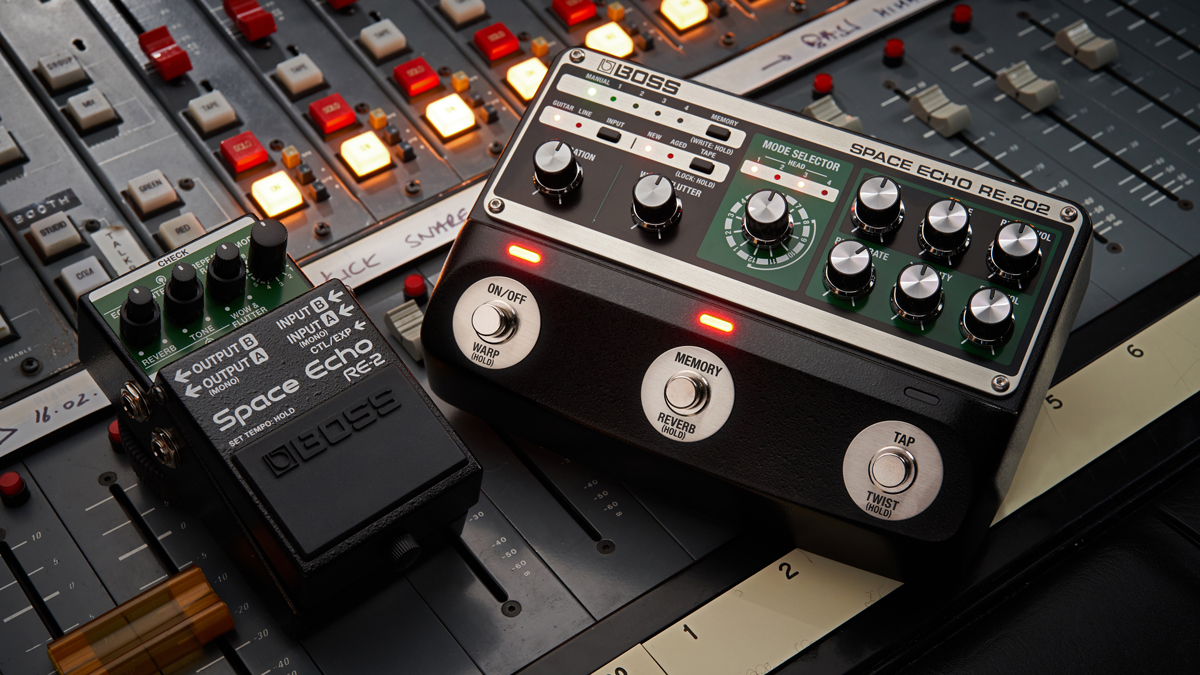
Boss has unveiled the RE-202 and RE-2, two new digital pedals based on its iconic RE-201 Space Echo tape echo of the ’70s and ’80s.
The RE-202 boasts a trio of footswitches and additional functionality, while the RE-2 strips the Space Echo sound down to its core essentials.
Based on analysis of several vintage RE-201s – one of which was in pristine condition lurking in the Boss/Roland archive – the new pedals promise to recreate the unit’s iconic echo and warble with all-new algorithms, spanning every possible nuance of the tape path, record/playback mechanism, motor variations, preamp coloration and spring reverb character.
Let’s take a closer look at each pedal in detail…
Boss RE-202 Space Echo ($399)
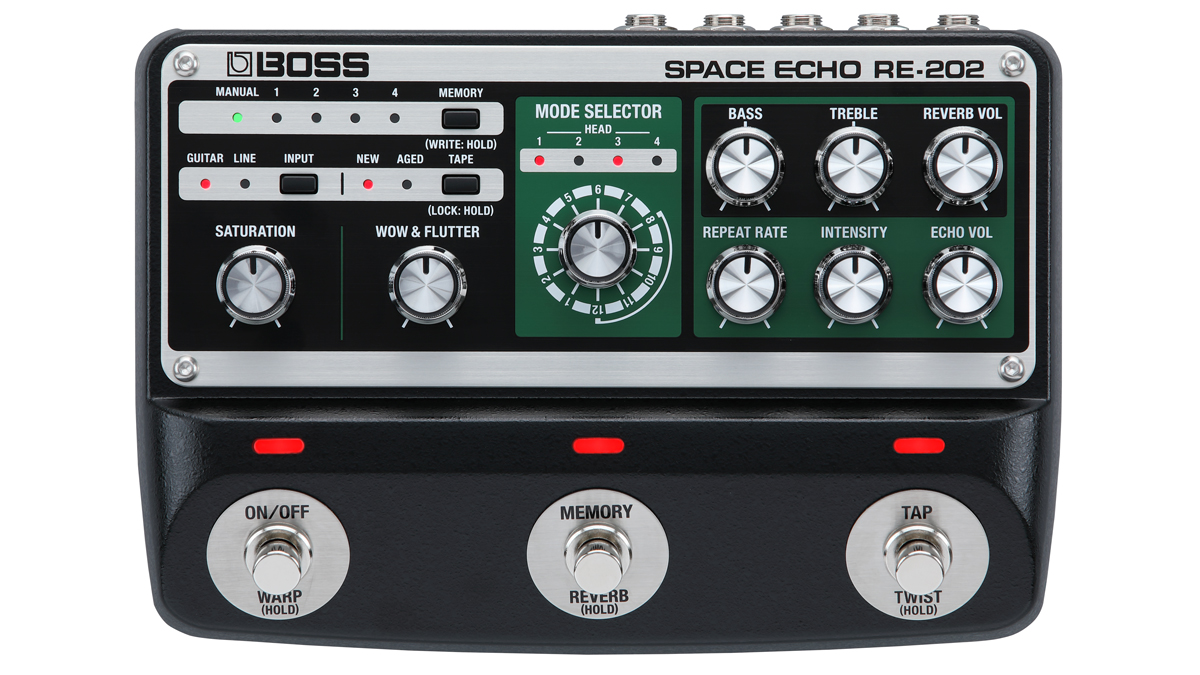
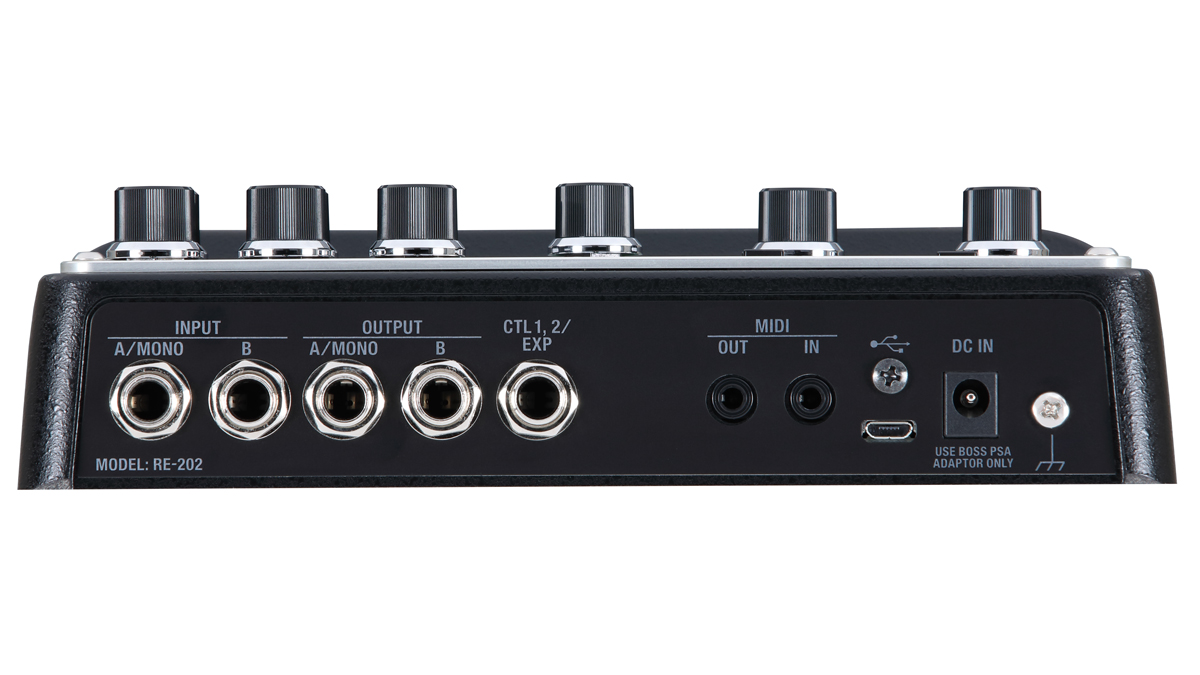
Not only does the RE-202 recreate the look of the RE-201, but it also packs all the controls of the original unit, including the 12-position mode selector.
Boss is promising “complete accuracy” with regard to the pedal’s sonic behavior, from gradual pitch changes to runaway feedback.
While you’ll never need to replace a physical tape in the RE-202, you can replicate the age and variable nature of well-worn tapes via dedicated settings, while Saturation and Wow & Flutter controls dial in preamp and modulation flavors.
Get The Pick Newsletter
All the latest guitar news, interviews, lessons, reviews, deals and more, direct to your inbox!
There are new additions, too, not least double the delay time, tap tempo control, four preset memories and a fourth virtual tape head for five extra sound combinations. The additional footswitches can be used for oscillation fun, too, via warp and twist hold functions.
You also get stereo inputs and outputs and selectable guitar/line-level operation, while the dry sound can utilize the RE-201 preamp tone or an entirely clean signal.
In a nod to the functionality of Boss’s flagship 500 units, you can mute the dry signal for parallel effects setups, while the pedal can be controlled via external footswitches, an expression pedal or MIDI via mini-MIDI jacks. A micro-USB port is on hand for product updates, too.
Boss RE-2 Space Echo ($299)
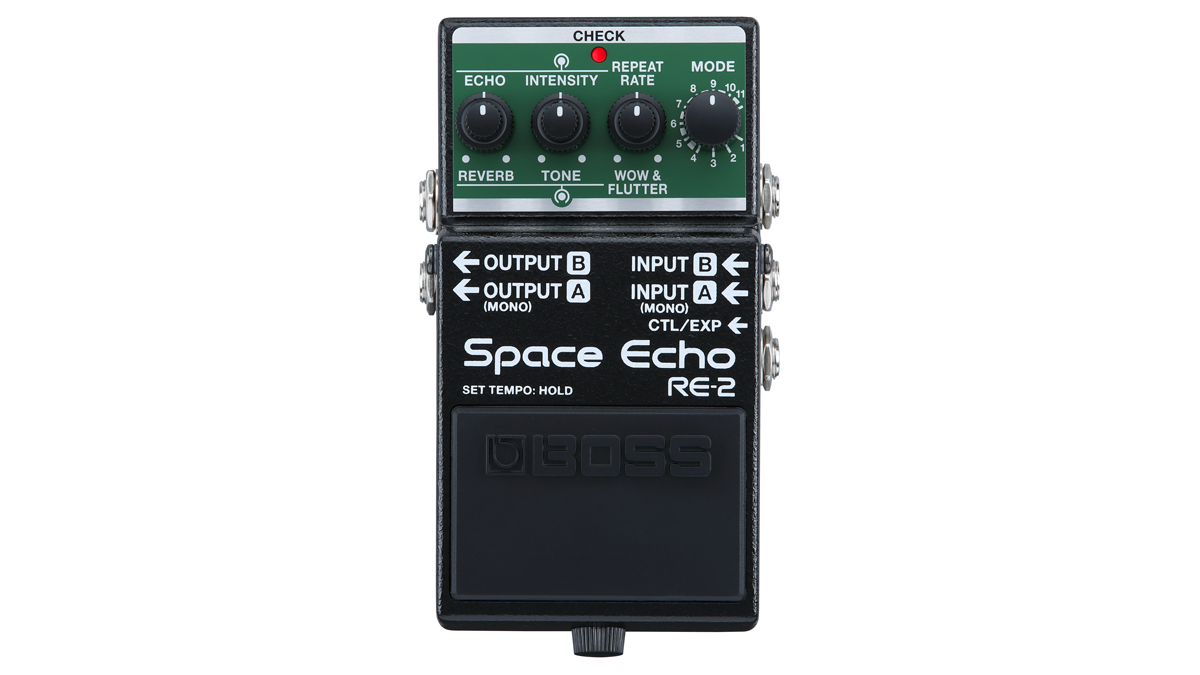
Condensing the RE-201’s key characteristics into a compact pedal, the eagerly anticipated RE-2 features an 11-position mode selector, with access to three virtual tape heads with or without spring reverb.
The echo/reverb blend can be adjusted via independent level knobs, while further adjustment comes courtesy of Wow & Flutter control.
Like the 202, the RE-2 features extended delay time, plus selectable carryover, stereo inputs and outputs. You can select between unprocessed and preamp-equipped dry signal, too.
There are also tap tempo or twist controls, accessed by holding the pedal’s footswitch, as well as external control support via a separate jack.
First launched in 1974, the RE-201 is considered by many to be the definitive Space Echo, owing to its trio of tape heads, spring reverb tank, rich modulation and warm, compressed tape saturation and preamp.
Production eventually ended in 1990, before Boss released its first pedal take on the format in 2007 with the twin-footswitch RE-20.
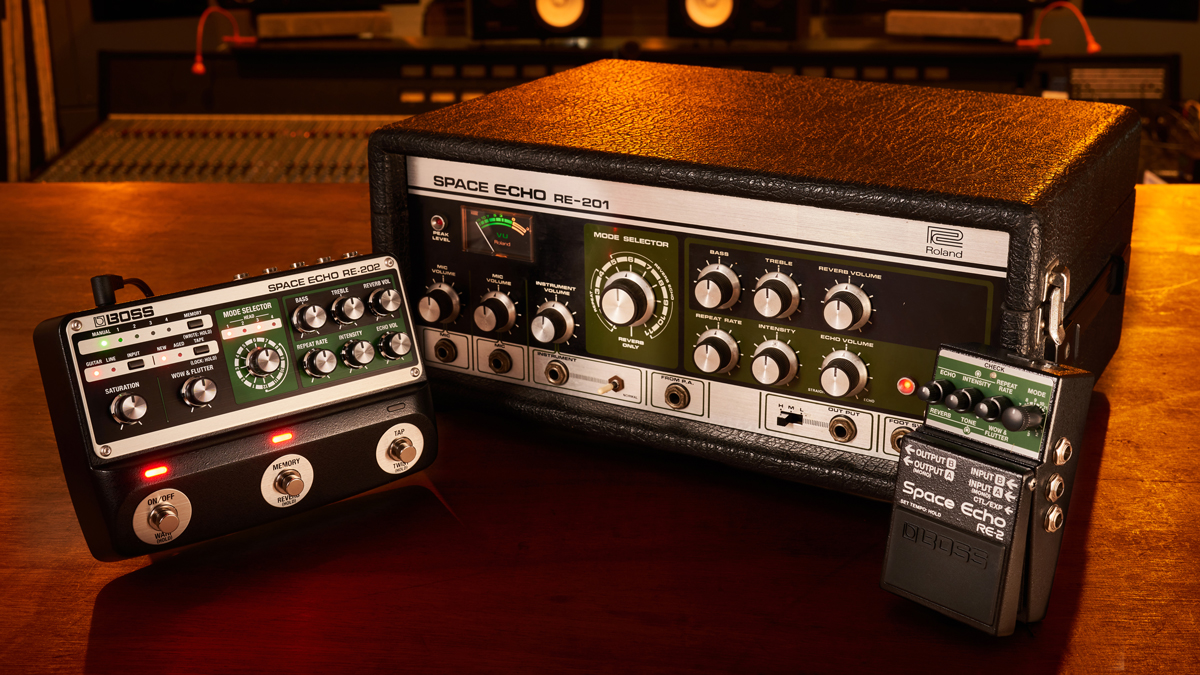
However, given the plethora of tape echo-emulating pedals that have emerged in the years since from the likes of Strymon, Wampler, NUX, et al, fans have been clamoring for newer, more accurate incarnations from the original manufacturer.
So much so that a mockup of a Waza Craft RE-2W went viral back in 2019, before Boss finally confirmed that a compact RE-2 was on the way earlier this year, after the mysterious sale of early units on eBay sent the internet into a frenzy.
If Boss can sonically deliver on its meticulous research, the RE-202 and RE-2 could be the tape echo pedals to own. Top work on those enclosure designs, too. Very nice. Very nice indeed.
For more information on both pedals, head to Boss.info.

Mike is Editor-in-Chief of GuitarWorld.com, in addition to being an offset fiend and recovering pedal addict. He has a master's degree in journalism from Cardiff University, and over a decade's experience writing and editing for guitar publications including MusicRadar, Total Guitar and Guitarist, as well as 20 years of recording and live experience in original and function bands. During his career, he has interviewed the likes of John Frusciante, Chris Cornell, Tom Morello, Matt Bellamy, Kirk Hammett, Jerry Cantrell, Joe Satriani, Tom DeLonge, Ed O'Brien, Polyphia, Tosin Abasi, Yvette Young and many more. In his free time, you'll find him making progressive instrumental rock under the nom de plume Maebe.
“The original Jordan Boss Tone was probably used by four out of five garage bands in the late ’60s”: Unpacking the gnarly magic of the Jordan Boss Tone – an actual guitar plug-in that delivers Dan Auerbach-approved fuzz
“This is a powerhouse of a stompbox that manages to keep things simple while offering endless inspiration”: Strymon EC-1 Single Head dTape Echo pedal review












